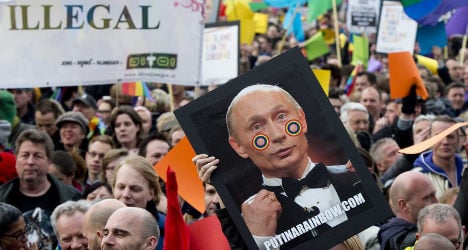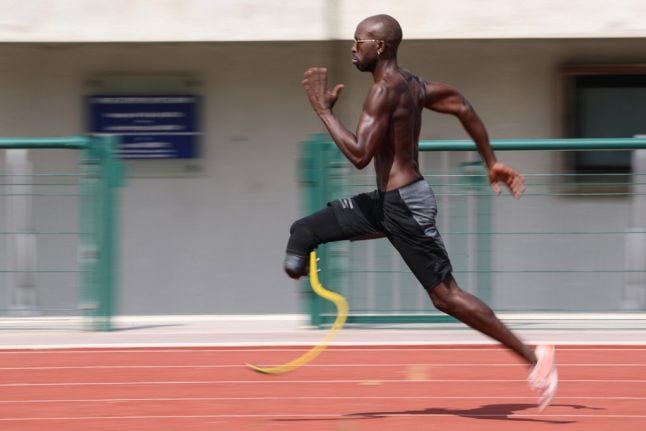France's sports minister on Monday told her Russian counterpart that Paris was "worried" by the adoption of a law banning gay "propaganda" for minors that risks overshadowing the 2014 winter Olympic Games in Sochi.
French Sports Minister Valerie Fourneyron told AFP that she said at a meeting with Russian Sports Minister Vitaly Mutko in Moscow that France was "clearly opposed to all discrimination based on sexual orientation".
"I was able to tell my Russian counterpart that France was worried by the adoption and implementation of the law… which challenges the freedom of expression of any person, whether they are LGBT or not, who wants to speak out on this subject," she told AFP by telephone.
The hugely controversial law has sparked calls for a boycott of the games but Fourneyron indicated that France agreed with US President Barack Obama and British Prime Minister David Cameron that a boycott would not be appropriate.
"We think that it is much more our duty to continue to try and alert the Russian authorities" to the problems created by the law, she added.
Russian President Vladimir Putin in June signed into law legislation that punishes the dissemination of information about homosexuality to minors but which activists say can be used for a broad crackdown against gays.
The Russian authorities have said that all athletes will be free and safe to compete at the Sochi Games regardless of their sexual orientation but must obey Russian law.
Foreigners found guilty of violating the law can not only be fined up to 5,000 rubles (€114, $156) but face administrative arrest of up to 15 days and eventual deportation.
The head of Russia's Olympic Committee Alexander Zhukov on Monday reaffirmed the official line that while all athletes were welcome in Sochi they would have to obey the controversial law.
"We will do everything to make sure that all our guests feel comfortable and safe," Russian news agencies quoted Zhukov as saying.
"If a person does not announce his opinions (about homosexuality) in the presence of children then no measures will be used against him – citizens of a non-traditional sexual orientation will be able to take part without any problem in the competitions or any other events," he added.
The interior ministry meanwhile issued a statement insisting that there would be no discrimination at the Games, saying such allegations were aimed at "undermining trust" in the event.
The propaganda law is not te only example of how France's stance on gay rights differs markedly from that of Putin's Russia.
Earlier this year, following France's vote to legalize gay marriage, Russian lawmakers passed a bill which placed tough restrictions on adoption to countries where same-sex marriages are legal.
Same-sex marriages are currently legal in 14 countries, including Canada, Belgium, Spain, Norway and Sweden, with France being the latest addition to the list.





 Please whitelist us to continue reading.
Please whitelist us to continue reading.
Member comments